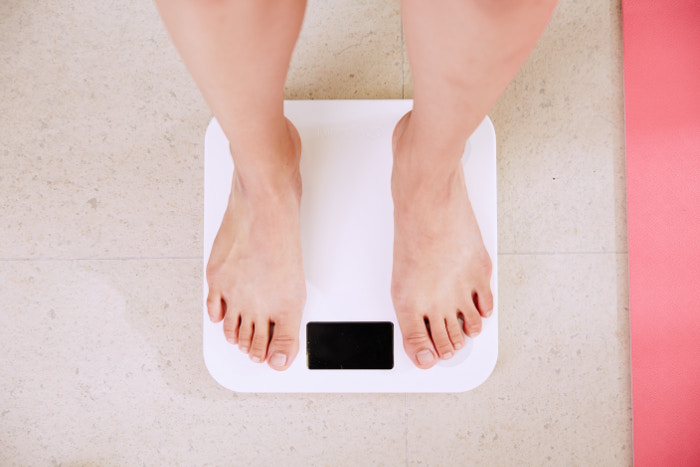
How Weight Affects Sleep Apnea and Vice Versa
The National Sleep Foundation says losing a few pounds is more than a vanity play – it could help reduce your risk of this debilitating health condition:
“Obstructive Sleep Apnea (OSA) - a disorder where blocked airways during sleep lead to disrupted breathing and excessive snoring – affects about 3 to 7 percent of the US population, with older adults more likely to be at risk. A number of factors raise the chance of having sleep apnea, including small airways, nasal congestion, and the use of alcohol or cigarettes. One of the biggest risk factors ? Carrying excessive weight. In fact, about half of people with sleep apnea are over-weight, leading researchers to explore the relationship between the two conditions.
How Weight Gain Leads to Sleep Apnea
While not everyone who is overweight has sleep apnea, putting on extra pounds does increase the chance of having the disorder. That’s because weight gain can cause fat to accumulate in the neck area, obstructing breathing and leading to sleep apnea. For this reason, weight loss is one of the first lifestyle remedies that doctors recommend when treating OSA. Losing 10 percent of your body weight can significantly improve the condition or even get rid of sleep apnea completely.
How Sleep Apnea Can Cause Weight Gain
Having sleep apnea can also contribute to gaining pounds, and people with severe OSA have a greater chance of gaining more weight compared to those with less severe OSA. Poor sleep quality influences the production of hormones related to appetite, and also OSA can cause daytime sleepiness, thereby decreasing physical activity. Unfortunately, this can also make it difficult for people with OSA to lose weight.
If you’re overweight or obese and believe you may have sleep apnea, talk with your doctor. He or she can refer you to a sleep specialist, who may prescribe therapy such as continuous positive airway pressure (CPAP). This mask-like device is worn throughout the night and uses air pressure to keep airways open, helping to prevent snoring. When left untreated, sleep apnea can lead to high blood pressure, type 2 diabetes, and heart trouble, so it’s important to partner with your physician to figure out how to ease the condition.”
At Center for Sleep and TMJ Disorders we focus on our patients' wellness
Our team approach can include your physician, sleep doctor, dentist, primary care physician, cardiologist, pulmonologist, rheumatologist, endocrinologist, chiropractor, physical therapist, acupuncturist, cranial sacral therapist, or others. Our goal is to improve your quality of life, making you as pain-free and healthy as you can be with minimal medical intervention.
Diagnosing Sleep Apnea
Fortunately, sleep apnea can be diagnosed by a physician that specializes in sleep disorders, and easily treated. Learn more about treatment options for sleep apnea.
If you or someone you care about may have sleep apnea, schedule a consultation with Dr Stern.
Custom Mouth Guard Replaces CPAP Therapy
Oral appliances treat obstructive sleep apnea by keeping the airway open in one of three ways: by pushing the lower jaw forward (a mandibular advancement device or MAD), by preventing the tongue from falling back over the airway, or by combining both mechanisms.
The most common type of oral apnea appliance, a MAD, is adjustable so that the dentist can guide the lower jaw forward as necessary. Apnea appliance therapy helps many people who have trouble tolerating traditional CPAP therapy. The appliance may also be designed to help stop teeth grinding in your sleep.
To learn more about everyone in your house getting a better night’s sleep: request a consultation today.
